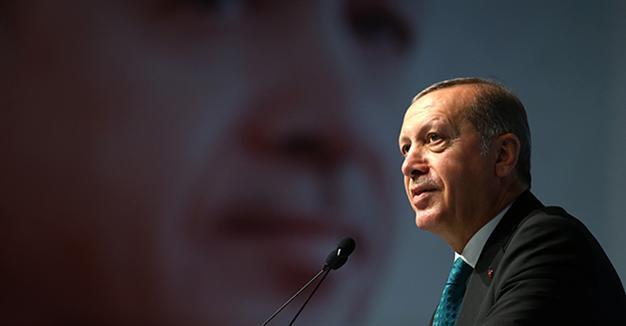Turkey to urge NATO to intensify anti-terror fight
Erdinç Çelikkan – ANKARA

Turkish President Recep Tayyip Erdoğan is expected to urge NATO to intensify cooperation against terror at the alliance’s Warsaw summit on July 8-9, as the organization prepares to discuss crucial issues.
In the aftermath of a terrorist attack on Istanbul’s Atatürk Airport on June 28, where 47 people were killed, Erdoğan will raise the issue of global cooperation against terror organizations like the Islamic State of Iraq and the Levant (ISIL), the outlawed Kurdistan Workers’ Party (PKK), the Syrian Kurdish Democratic Union Party (PYD) and its military offshoot, the People’s Protection Unit (YPG), sources said.
Turkey regards both the YPG, which is fighting ISIL jihadists, and the PYD as offshoots of the PKK, which has been in conflict with Turkish security forces since July 2015.
Erdoğan will also urge NATO to increase its collective defense power, sources said.
Erdoğan, who will be accompanied by Foreign Minister Mevlüt Çavuşoğlu and Defense Minister Fikri Işık, will also raise the developments in Syria at the NATO summit, which will be one of the most critical high-level platforms for a discussion of the latest issues in Syria and global terrorism.
In Warsaw, NATO leaders are expected to cement a new deterrent against what they see as an emboldened Russia, returning to Cold War-style defense.
Russia says it is the alliance, not Moscow, that is increasing the risks of a broader conflict in Europe, citing NATO’s biggest modernization since the Cold War and a U.S. missile defense shield as reasons to be worried.
Alliance chief Jens Stoltenberg said July 4 that the leaders “will agree to further enhance our military presence in the eastern part of the Alliance.”
He said the leaders would agree to deploy four robust, multinational battalions to Estonia, Latvia, Lithuania and Poland, while also taking steps to improve cyber-defense, civil preparedness and the ability to defend against ballistic missile attacks.
Erdoğan will also highlight the need to strengthen NATO’s capability in the Black Sea.
Erdoğan said in May that he had told Stoltenberg during a visit by the latter to Turkey that NATO was not visible in the Black Sea and that this had turned the sea “into a Russian lake, so to speak.”
“As riparian countries, we should live up to our responsibilities. As NATO members, we should take all required steps in all spheres, including the sea, air and ground. Otherwise, history shall not forgive us,” Erdoğan told chiefs of defense from the Balkans in May.
With regards to other crucial topics to be handled during the summit, Stoltenberg said NATO estimates showed that defense spending by European allies and Canada was expected to rise by 3 percent (around $8 billion) in 2016.
He said the deployment of NATO AWACS surveillance aircraft to support the Global Coalition to counter ISIL was also expected to be approved.
NATO members are further expected to confirm their support for the Afghan government, aware that they have little alternative if the country is to hold together in the face of renewed Taliban attacks.
 Turkish President Recep Tayyip Erdoğan is expected to urge NATO to intensify cooperation against terror at the alliance’s Warsaw summit on July 8-9, as the organization prepares to discuss crucial issues.
Turkish President Recep Tayyip Erdoğan is expected to urge NATO to intensify cooperation against terror at the alliance’s Warsaw summit on July 8-9, as the organization prepares to discuss crucial issues.